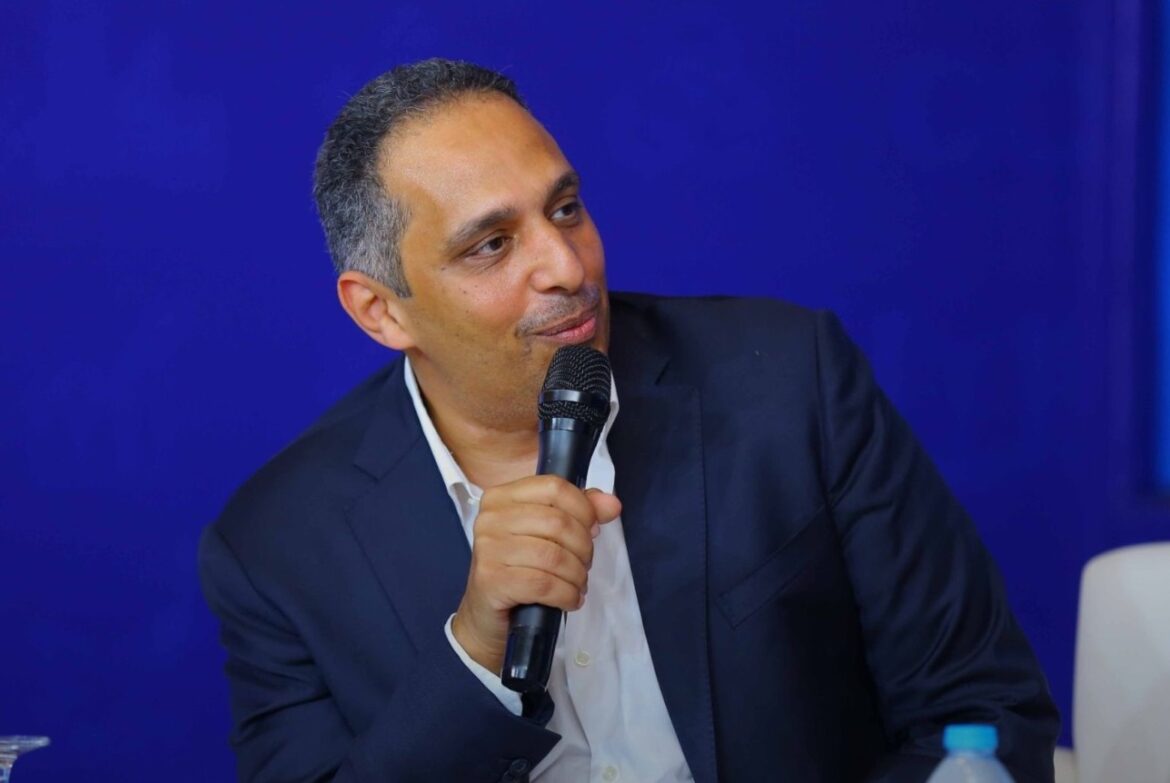In recent years, there has been a growing interest among private sector organisations and companies in adopting sustainable practices as part of their operations. Competition between companies has been a key driver of progress here.
Further, while the transition towards sustainability still faces many challenges in the Arab region, the number of sustainable initiatives and programs is on the rise, suggesting that there is a major sustainability boom ahead in the coming years.
In this context, ESG Mena Arabic conducted an interview with Dr. Ehab Shalaby, Chairman of the Board of Directors of DCarbon, a company specialised in sustainability and concerned with environmental impact, which works to help companies transition to sustainable business models.
How does DCarbon help companies transition to more sustainable business models?
DCarbon is a company that cares about environmental impact and specialises in sustainability and climate change. Its mission is to help companies transition to sustainable business models and transfer expertise, thus helping them achieve environmental, economic and social goals.
The company was established in 2015 and is led by a group of experts specialising in environmental, strategic, economic and social sustainability.
What distinguishes DCarbon in the field of sustainability?
What distinguishes DCarbon is that we work with global entities such as United Nations organisations, regionally with banks and regional institutions, and nationally in Egypt, the UAE, Kuwait and Bahrain. We have worked with both the government and private sectors.
We have a headquarters in Cairo that covers Egypt and East Africa, and a headquarters in Abu Dhabi that covers the Gulf States. We divide our work into 12 main sectors. Our role in them is to identify the main actors and players from organisations, civil society organisations and companies.
We combine the company’s political, economic, social, and environmental expertise. Therefore, the perspective we work from takes into account all these elements. At the same time, we combine academic, research, and policy services.
How can the application of sustainability achieve profit and competitiveness for companies?
Our role is to explain to companies the procedures required to transition to sustainable models. Each company has to do cost-benefit calculations and set its priorities.
The first question we ask the company is why do you want to transition to more sustainable business models? There are many reasons, such as the desire to obtain foreign investments because all foreign investments are now linked to the company’s compliance with sustainability standards or compliance with international and Egyptian laws such as the laws of the Central Bank of Egypt and the laws of the capital market that require compliance with sustainability standards. If the company wants to export, there are conditions for compliance with sustainability.
The reason may be to achieve leadership, competitiveness and the ability to open new markets, or to achieve efficiency and rationalise spending because sustainability in its general concept is an attempt to use resources in the best possible way. When we reduce the rate of emissions, we also reduce energy consumption and thus preserve the resource.
Therefore, our task here is to help each institution identify the reasons for the transition to sustainability, because each reason has a different roadmap, and each company has its own different priorities.
What are the challenges facing private sector companies in transitioning to sustainable business models?
The sustainable business model is a new model that faces the challenge of changing the mindset. For many years, it was believed that the only goal of companies was to make a profit, but the concept of sustainability says that companies must also have an impact, not just make a profit.
Therefore, we face the challenge of changing the mindset at the level of senior management in institutions, followed by the challenge of implementation at all levels of the institution, and spreading awareness among the cadres within the institutions.
The third challenge is that the departments work in isolation from each other, but the idea of sustainability forces everyone to work in coordination and integration. The fourth challenge is the lack of information and data, and the inability of some institutions to provide transparency reports to identify the challenges they face.
Here, DCarbon works to support companies in their journey towards sustainability, starting from identifying the current status of the institution, then searching for the best global practices around performance indicators, then setting executive plans to move from one stage to another, then implementation and final review.
How do you assess the growth of companies’ transition to sustainability?
Since 2015, this transformation has gone through three stages.
From 2015 to 2020, the transition of companies towards sustainability was very limited, and the motivation behind it was leadership and competitiveness. From 2020 to February 2023, the legislation that incentivises and supports the transition to more sustainable business models increased. Since 2023, the growth has become increasingly rapid because the IFRS (International Financial Reporting Standards) body launched the s1 and s2 standards. These standards mean that attention to environmental, social and governance (ESG) sustainability elements has become linked to financial statements, not just environmental impact.
After five years, where will a company that has not transitioned to sustainability be in the market?
It will not exist in the market. The evidence for this is that the Global Sustainable Investment Forum said in its latest report that the size of assets that comply with sustainability standards in the world reached $31 trillion in 2022, and is increasing by 16% annually. This means that all managed assets in the world will become sustainable assets by 2030.
Therefore, it is expected that by 2030, the majority of investments will be sustainable, and the minority will be non-sustainable investments.
Do you have plans to expand in the Arab region?
This year we opened an office in the UAE, and we plan to open offices in Saudi Arabia, Bahrain, Qatar, and Oman.
By Hadeer Elhadary, Lead Journalist, ESG Mena Arabic




